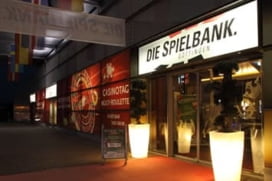Germany has a long history of gambling. The earliest land-based casinos opened in Germany in the 18th century. After World War II, a new German constitution made gambling law in West Germany a matter of the individual states. German gambling laws originally focused on lotteries and sports betting, including horse racing. Casino laws were restrictive. These restrictions softened over the years. East German gambling laws allowed lotteries and betting on horse races. Sports betting and casinos were illegal. After the Reunification in 1990, casinos appeared across East Germany. 16 local state authorities have been given the right and responsibility to regulate gambling on their territory. However, online gambling activities in Germany are now monitored and controlled at a higher level. Currently, horse racing betting, online lotteries, and online sports betting can be operated in Germany. Since 2012, licenses for online casinos have only been awarded in the state of Schleswig-Holstein.
Many Germans are involved in gambling activities as part of their pastime. The largest gambling city in Germany is Berlin. The legalized gambling industry brings a turnover of billions of euro every year. According to the Handelsblatt Research Institute, the gross gaming revenue in 2018 amounted to EUR 14.2 billion. EUR 10 billion came from land-based casinos, slot machines, and lotteries, while over EUR 3 billion was generated from an online gambling market. The volume of the illegal gambling market, which mainly attributes to the online gambling market, was estimated between EUR 4 billion to EUR 22 billion (https://www.bmmagazine.co.uk/business/german-gambling-in-numbers/). The minimum gambling age in Germany is 18. Though, the minimum casino age in some German federal states is 21 (e.g. Baden-Württemberg and Bavaria).















































